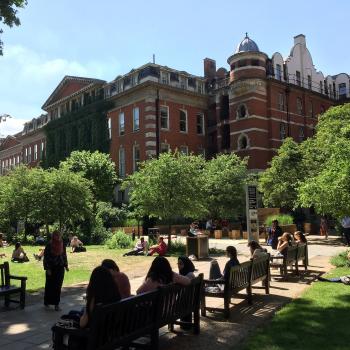
Here are a trio of passages that I’ve extracted from Huston Smith, Beyond the Post-Modern Mind, updated and revised (Wheaton, Illinois; Madras, India; and London, England: The Theosophical Publishing House, 1989):
Relativism sets out to reduce every kind of absoluteness to a relativity while making an illogical exception for its own case. In effect, it declares it to be true that there is no such thing as truth; that it is absolutely true that only the relatively true exists. This is like saying that language does not exist, or writing that there is no such thing as script. Total relativism is an incoherent position. Its absurdity lies in its claim to be unique in escaping, as if by enchantment, from a relativity that is declared alone to be possible.
Relativism holds that one can never escape human subjectivity. If that were true, the statement itself would have no objective value; it would fall by its own verdict. It happens, however, that human beings are quite capable of breaking out of subjectivity; were we unable to do so we would not know what subjectivity is. . . .
If Freudian psychology declares that rationality is but a hypocritical cloak for repressed, unconscious drives, this statement falls under the same reproach; were Freudianism right on this point it would itself be no more than a front for id-inspired impulses. There is no need to run through the variations of relativism that arise from other versions of psychologizing, historicizing, sociologizing, or revolutionizing. Suffice it to say that few things are more absurd than to use the mind to accuse the mind, not just of some specific mistake but in its entirety. If we are able to doubt, this is because we know its opposite; the very notion of illusion proves our access to reality in some degree. (217-219)
The opposite of the sense of the sacred is not serenity or sobriety. It is drabness; taken-for-grantedness. Lack of interest. The humdrum and prosaic. (253)
And, quoting the late Lewis Thomas:
It may turn out that consciousness is a much more generalized mechanism, shared round not only among ourselves but with all the other conjoined things of the biosphere. . . . [I]n which case we will find that we have a whole eternity of astonishment stretching out ahead of us. (226)












